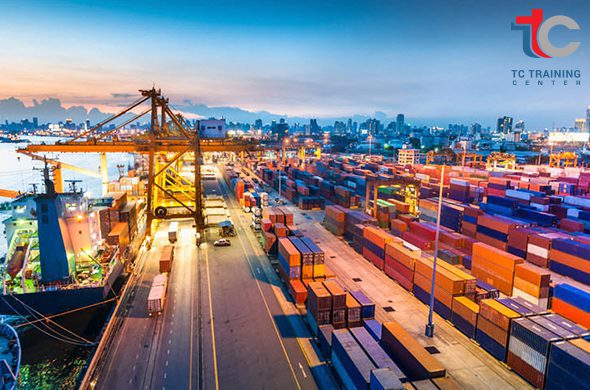Logistics & Supply Chain Management
Start time
Finish time
Address
Course price

The idea of the program
The business environment has changed, with globalization, competition intensifying, customer expectations growing, technological developments, geopolitical factors, etc. It is no longer enough for the Organization to focus solely on internal management; to achieve the required competencies. But managers must understand that their business is only part of the supply chains involved.
The field of competition is no longer “organized versus organized,” but rather “chain-of-supply versus supply chain.” The survival of an organization today is no longer dependent solely on its ability to compete independently, but on the ability to cooperate within the supply chain. It is now becoming more interconnected within the supply chain than ever before, and this is why it leads to the need for supply chain management.
Program Goals:
By the end of the program, the participant attending the program can:
- Recognizes the concept of logistics and supply chain management
- Recognizes the role of logistics in supply chain management
- Recognizes how supply chain management can play a key role in achieving a competitive advantage
- Identifies the factors affecting the supply chain network structure, operations and supply chain management components
- Design the supply chain
- Balances the conflicting logistics costs within the supply chain
- Identify areas where logistics management can make improvements
- Effectively exercises supply chain and logistics management functions
Impact of training on the institution:
Application of the concept of logistics and supply chain can be enterprise of
- Achieve competitive advantage in dynamic markets
- Increase profitability.
- Ability to apply the concept of supply chain risk management
- Achieve coordination and interlinkages between different functions, thus contributing to creating value
- Develop an action plan that enables improved logistics and supply chain performance
Effect of trainee training:
Participants are acquired in this program
- Keeping pace with changes in the business environment and processes
- Gain financial benefits for the effectiveness of supply chain management
- Apply work improvements
- Apply best practices in logistics and supply chain management
- Learning from the experiences and practices of other participants
For whom this program:
- Senior supply chain managers and executives are looking for thought leadership in their supply chain
- Supply chain management staff, making them familiar with the latest ideas, frameworks, tools and application
- Marketing managers, customer service managers, manufacturing managers, managers who seek to integrate the supply chain or who want to understand the impact of supply chain decisions on the performance of their company
Outlines:
First day
Logistics Management
- Logistics management concept
- The role of logistics in the service of the institution
- Logistics management activities and the need for their integration
- The impact of logistics on the profitability of the company
- Logistics as a competitive weapon
- Supply chain management
- Supply chain management concept
- The difference between logistics and supply chain management
- Supply chain management elements and key decision
- Supply chain management design
- Evaluate supply chain performance
Second day
Customer’s service
- Customer service concept
- Ways to develop a customer service strategy
Inventory Management
- Financial implications of inventory
- Inventory control policies
- Establish the appropriate policy for stock control
- Determination of storage levels (supply quantity – maximum inventory – demand limit – minimum stock and safety stock)
- Disposal of excess and idle stock
Third day
Transport economics
- Importance and role of transport in logistics
- Key decisions related to transportation
- Types of transport and multimodal transport
- Conditions of international trade in transport and limits of liability
Documents and documents used in the field of transport
- Transport of hazardous materials.
Fourth day
Purchase and measure requirements
- The difference between buying and managing needs
- Importance and role of procurement in the supply chain
- Relationship between purchase and logistics
- Supplier selection criteria
- Strategic and operational role of procurement
- Manage costs associated with purchasing
- The role of purchasing in increasing the profitability of the company
- Evaluate and measure the performance of procurement management
Fifth day
Warehouse Management
- Importance and role of stores in logistics
- Functions and functions of warehouse management
- Design and location of the store
- Choose storage equipment
- Measuring performance in the warehouse area




